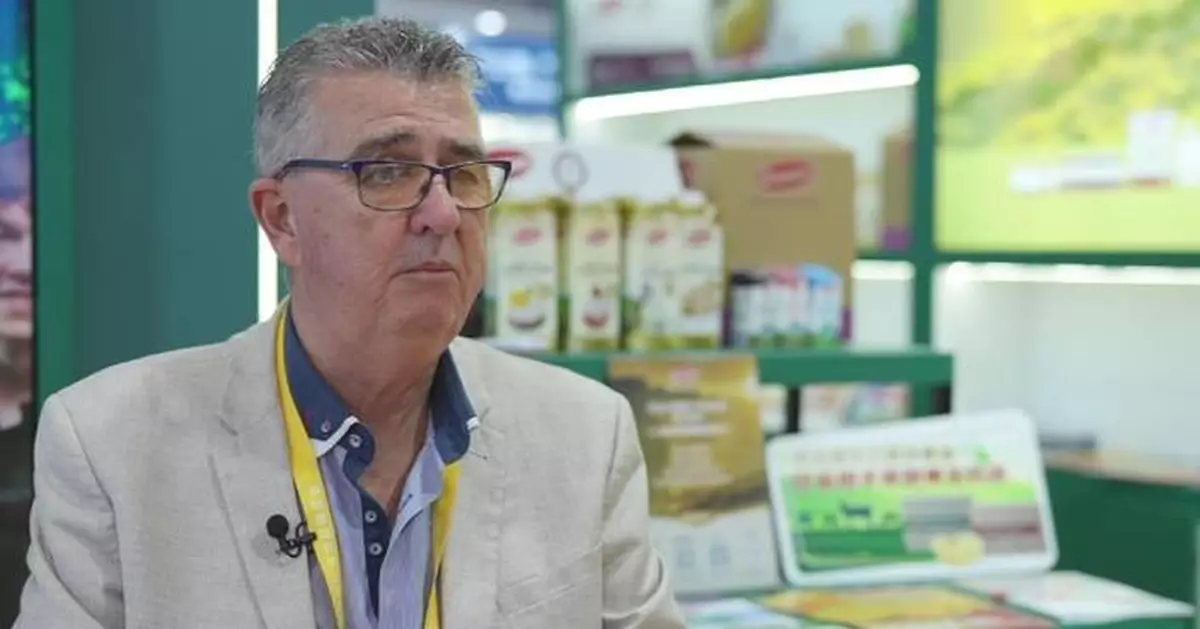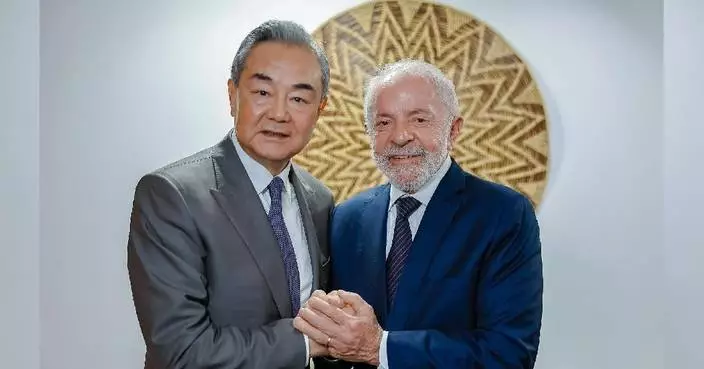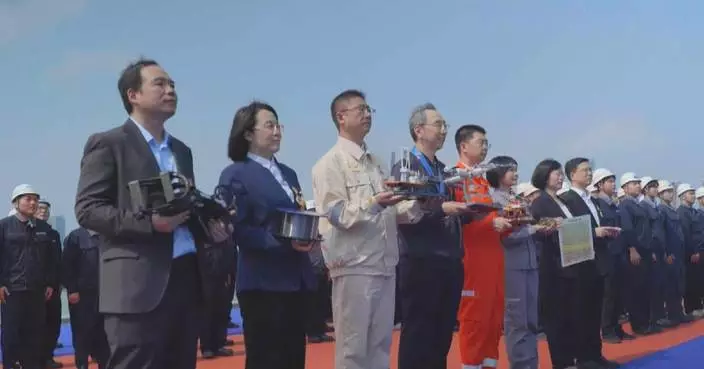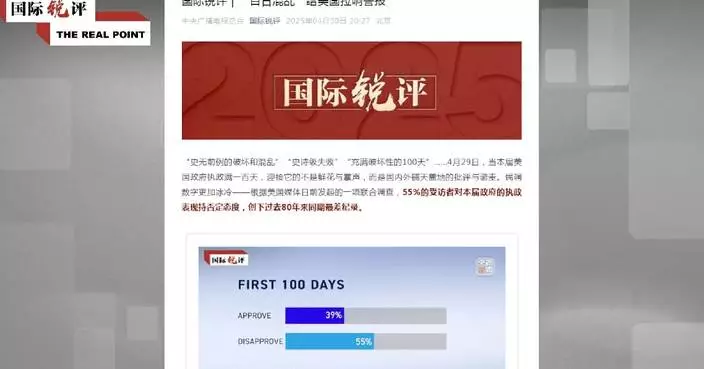South China's island province of Hainan has become a key destination for Irish companies seeking investment opportunities and business growth due to its supportive environment, including fast-tracked trials for innovative products and favorable tax policies, said Joseph Keating, counselor for trade, commerce, technology and innovation at the Irish embassy in China.
Keating recently attended the the fifth China International Consumer Products Expo (CICPE), held from April 13 to 18 in Haikou, capital of Hainan. The expo drew more than 4,100 brands from 71 countries and regions around the globe, marking its largest edition to date.
In an interview with China Global Television Network (CGTN) at the event, he emphasized Ireland's reliance on trade, hailing the Hainan expo as a platform for Irish companies to seek for buyers and expand their consumer base.
"We're a small nation, five million people, and we rely on trade. So, obviously trade expos are the place where we can apply our trade, where our companies can come to meet consumers and to meet buyers. So, the Hainan expo, as a consumer goods expo, we've been at it every year since its inception five years ago. Ireland has a number of innovative medtech companies, pharma companies and the advantages of Hainan is that they can bring goods here and trial them in Hainan. And it has a much faster route to approval, which they can then move them on to the mainland. So that's another huge advantage. Or if companies are manufacturing and wish to bring uncompleted goals here, add value to them here, there's also reduced tax, reduced tax for workers that come here. These are all huge advantages that make Hainan very important place and very good place for companies to invest. So, Ireland welcomes free trade and we would always support free trade, fair trade based on fairness on both sides with the WTO at the heart of the rules-based trading system," he said.
Keating underscored that Ireland regards China as an important strategic partner, with trade between the two countries consistently expanding.
"Over the last ten years, particularly, trade has been growing exponentially. Last year, 2024, goods reached almost 22 billion Euros. That's the second highest in history. In Asia, nearly half of all the trade between Ireland and Asia is with China. We view China as a very important strategic partner," he said.
The counselor highlighted several key sectors of the Irish economy where he expects to see fruitful collaboration with Hainan.
"Big sectors are in ICT, medtech services, medtech goods, stents for the heart. They're the large multinational companies and that's a very important trade for Ireland. From a point of view of our economy as well, what's fairly important is our indigenous industries. Our indigenous industries would be the agriculture sector, the education sector. The other big ticket item would be aircraft. Half of the world's aircraft are managed by aircraft leasing companies based in Ireland. So, it's a good trade in aircraft between Ireland and China as well," he said.
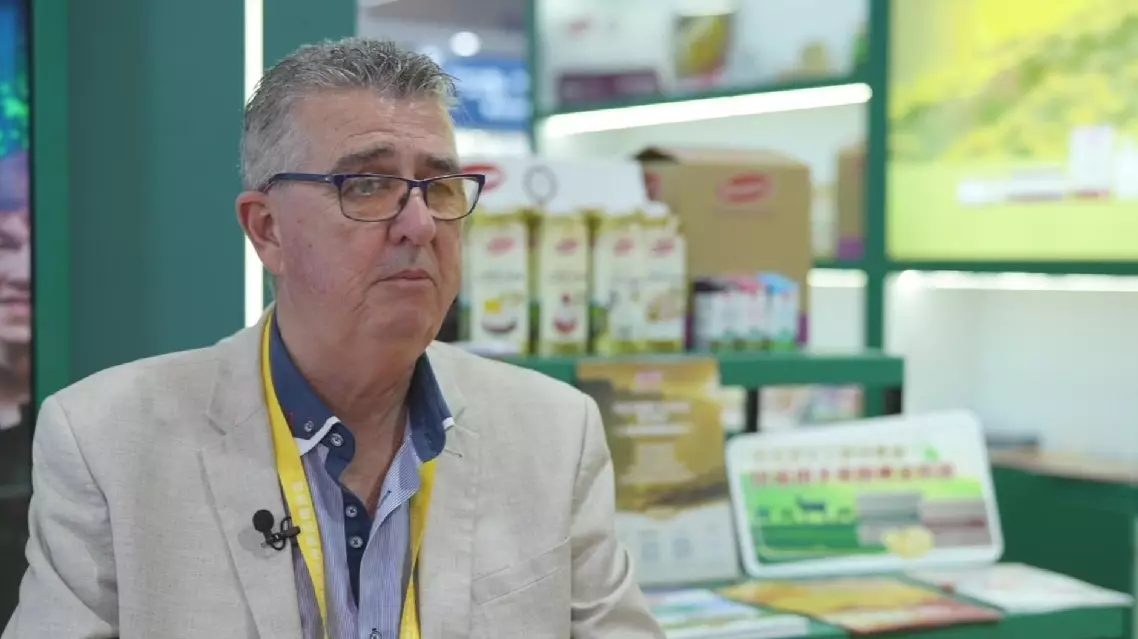
Hainan holds key investment opportunities for Irish companies: embassy counselor
U.S. tariffs on Cambodia, which were set at 49 percent, have sparked concerns among the Southeast Asian country's key export industries such as garment manufacturing amid the ensuing economic uncertainties.
On April 2, U.S. President Donald Trump announced the 49 percent "reciprocal tariff" on goods imported from Cambodia, the highest among all countries. Days later, the U.S. reduced the so-called "reciprocal tariff" to 10 percent for 90 days, offering a window period to Cambodia for negotiations with it.
Cambodian businesspeople say the tariffs have the potential to wreak havoc on the country's manufacturing sector, which, according to data from the World Bank, makes up around a fifth of the country's GDP.
"For U.S. manufacturers, definitely, there will be a big impact. If manufacturers are focusing on U.S. products, they are now in the middle. They don't know what they should do at the moment because the tariff now from Cambodia to the U.S. is actually quite high," said Dr. Ben Li, a Hong Kong investor in Cambodia and Chairman of the Cambodia Chinese Commerce Association.
Nevertheless, Li sees the tariff hike as an opportunity to export more Cambodian goods to the European Union, where a majority of Cambodian exports enjoy duty-free status.
"I always say there will be a light (at the end of the tunnel.) Even now, the U.S. tariff is so high, it's going to be so high after 90 days, we don't know. But, there's still a big market to Japan or to the European Union. There's still a big opportunity there," he said.
The Cambodian investor also believes the development of major infrastructure projects will help support Cambodia's economy.
"Especially the new canal and then the new airport, and the railways which connect to China. I believe once the logistics and infrastructure are built up, it can help the whole country's economy. By reducing the transportation costs, it can also mitigate the tariff costs," he said.
Cambodia and the U.S. held their first tariff negotiations on April 16, with more expected to follow. Local experts said the stakes are high for the country's workers.
"If this negotiation fails, there will be a significant impact. It will include the garment and travel goods sector. These sectors consist of about 1,068 factories and 930,000 workers. The income generated from these sectors is about 3 billion dollars per year. So it would significantly impact Cambodia's economy, jobs and incomes," said Chey Tech, a socio-economic research and development consultant from Dynamic Alliance Consulting.
Despite the potential risks, Tech expressed his optimism about a positive outcome, citing Cambodian Prime Minister Hun Manat's letter to Trump on April 4.
"The Prime Minister's letter confirmed that Cambodia would reduce the tariff rate for U.S. goods to 5 percent. Second, Cambodia is the least developed country. Third, Cambodia produces goods that the developed countries won't produce. We asked whether the U.S. would be able to produce these low-cost products. It cannot," said Tech.
In 2024, Cambodia exported goods of 9.9 billion dollars to the U.S., making it the country's largest market, accounting for 37 percent of Cambodia's total exports.
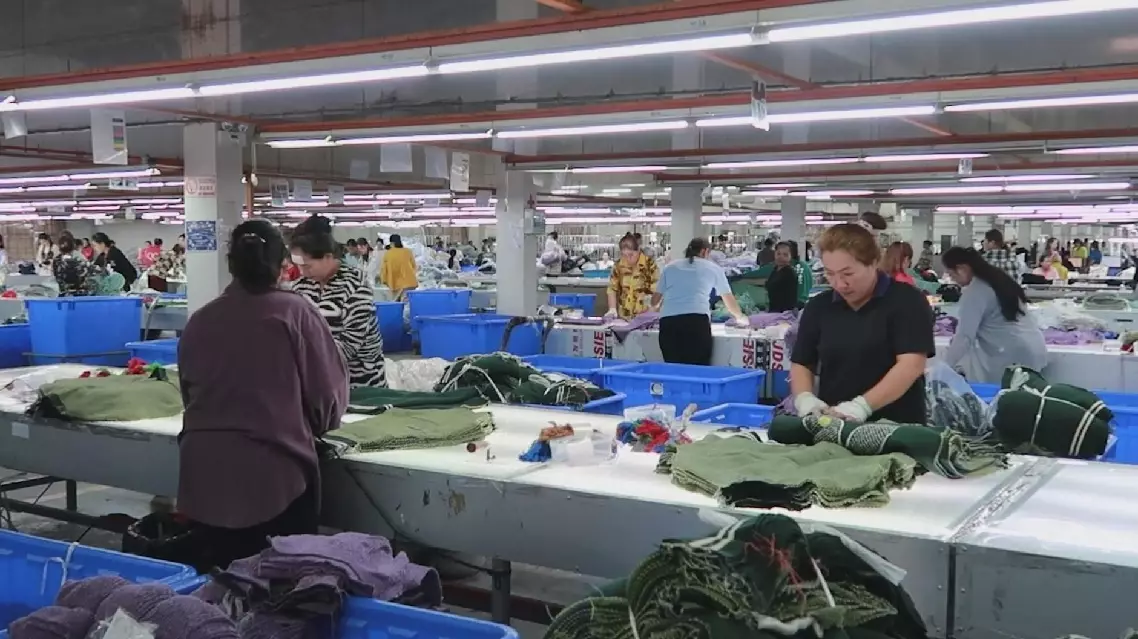
49-percent US tariffs sparks worry among Cambodia's key export industries



